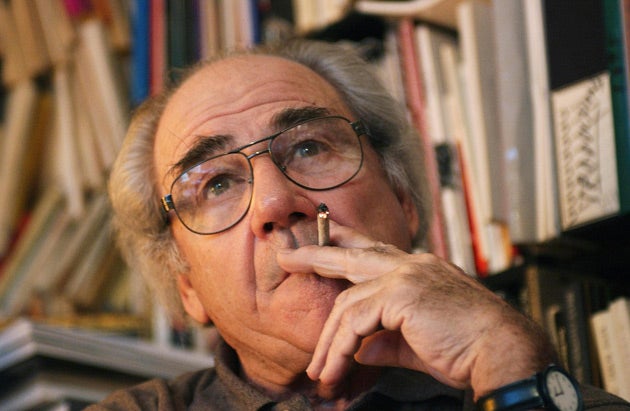Book of a lifetime: America by Jean Baudrillard
From The Independent archive: Ewan Morrison has everything turned upside down by a deceptively slim travelogue of a road trip through ‘the desert of the real’

America – as far back as I can recall, I’ve lived beneath its shadow. My hippie parents fled to a remote part of Scotland in the 1960s to escape from capitalism, but even there the Americans found us. Every day the fighter jets from their military base tore the sky above our house.
My father despised “the Yanks” – their music, their films, their greedy global reach – and as a young man I became a Trotskyist. But in 1989, as the Berlin Wall fell, I realised there was no alternative or escape. American capitalism was our future.
In that year, America by Jean Baudrillard turned everything I’d known upside down. Baudrillard was France’s most controversial postmodern philosopher. Formerly a leftist sociologist, he had turned his back on Marxism to create a series of essays written in a delirious, prophetic style. He dared to enter the seduction of capitalism and preached that total, passive acceptance was the only form of resistance.
Was he being ironic? Some even claimed he had gone insane. “Welcome to the desert of the real,” Baudrillard replied.
America (translated by Chris Turner) was not a vast philosophical tome but a deceptively slim travelogue of a road trip. It reveals a mind blown wide open; a philosopher lost in Disneyland, trying to understand it, forgive it, become it.
Baudrillard drives through San Antonio and Salt Lake City, and in Los Angeles discovers the intoxication of the freeway: “Driving is a spectacular form of amnesia. Everything is to be discovered. Everything is to be obliterated.”
He watches the New York Marathon in tears and believes it to be “the end of the world show”. He explains how America is a fiction told daily that has become real – “a utopia that has already been achieved.”
He reflects on the beauty of the American multiracial face and on the terrifying power of the American smile. Everywhere, images and words trigger his European desire to criticise but he struggles on, attempting to truly believe in America.
Ultimately, he fails. In California, he discovers graffiti on a beach that speaks for him. “[The message is] … no longer calling upon the revolutionary masses but speaking to the sky and the open space and the transparent deities of the Pacific: PLEASE, REVOLUTION!”
I carried this book when I moved to America to try out my own American dream, and when that failed, I carried it back. Its unanswered question still haunts me and has become more urgent. Is capitalism really our fate, and if so, how can we live with it? How can we live with ourselves?



Join our commenting forum
Join thought-provoking conversations, follow other Independent readers and see their replies
0Comments